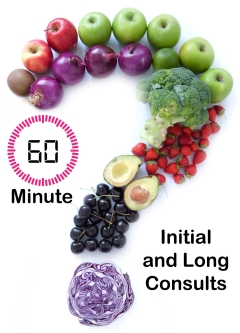DrCarney.com Blog
Why Eating Legumes May Help Your Heart
Whenever possible, eat a daily serving of legumes, which are an essential component of every heart-healthy diet. (Beans! Beans! Good for your heart!) The legume family of split peas, beans, lentils, and dal is rich in vitamins, minerals, fiber, and phytochemicals that promote heart health. In addition, legumes do not contain saturated fats, sodium, and cholesterol, all of which have been linked with different heart diseases. I encourage my patients to start their day right with beans for breakfast. Eating morning servings of greens, starchy vegetables, and beans is definitely encouraged in my Starch-Smart® System.
Current evidence indicates that daily consumption of legumes can help reduce the risk of developing several cardiovascular diseases. A 2017 study (that analyzed the relationship between legume intake and cardiovascular disease risk) reports that frequent consumption of legumes decreased the likelihood of developing cardiovascular ailments and coronary heart disease by 10%. Another study reveals that regular consumers of 1 serving of beans per day had a 38% reduction in the risk of suffering from a heart attack. Data from a US study indicate that individuals who ate legumes at least four times per week had 22% lower chances of having heart disease than their counterparts who ate legumes less than once per week.
Elevated blood pressure and cholesterol levels are among the risk factors for cardiovascular diseases. Dietary fiber (which is more abundant in legumes than in any other food group) has been demonstrated to lower high blood levels of cholesterol and inflammation. Together with potassium, the fiber in lentils, beans, and split peas reduce elevated blood pressure. Scientists believe that the cardio-protective effect of legumes may be mediated by their high fiber and potassium content. The famous Blue Zones studies found that legumes were a longevity factor that was shared by ALL of the Blue Zone populations, which boast a remarkably high number of people living past the age of 90. Loma Linda, CA is the only Blue zone population that is not rapidly declining in numbers, possibly due to the large numbers of Seventh-day Adventists clustered around the Loma Linda University School of Medicine.
Sadly, The World Health Organizations states that heart disease is the number one cause of deaths globally. On the brighter side, it is also one of the most preventable diseases. I highly recommend adopting healthy lifestyle and dietary habits that include the regular consumption of legumes, because they are potent weapons for defending the heart against a host of diseases.
Additional Information:
(1) Legumes and CVD risk: a Systematic Review and Meta-Analysis
Preview the "Best Blood Pressure Plan" Trailer
More Health, Less Medicine: Why take drugs for life to lower blood pressure? Resolve blood pressures naturally, with less medication! Many of Dr. Carney's patients normalize to need no medicine at all, using science from her Starch-Smart® System. Discover which foods raise blood pressure, narrow the arteries, and damage those all-important endothelial cells. Dr. Carney teaches the best ways to dilate your arteries today, and ditch those meds for good.
One Hour Phone Consult with Dr. Carney

Telephone Food Coaching Sessions with Linda Carney MD
Due to demand for nutritional advice, Dr. Carney's offers Starch-Smart® System "Dietary Care Extraordinaire" Food Coaching telephone sessions. The first sessions is always one hour. Subsequent sessions can be thirty minutes or one hour:
Click Here For 60 Minute Food Coaching Session
Please Note: Food Coaching sessions are not medical appointments and are not intended to replace your own physician. No tests will be ordered and no prescriptions will be provided.
When you subscribe to the blog, we will send you an e-mail when there are new updates on the site so you wouldn't miss them.




